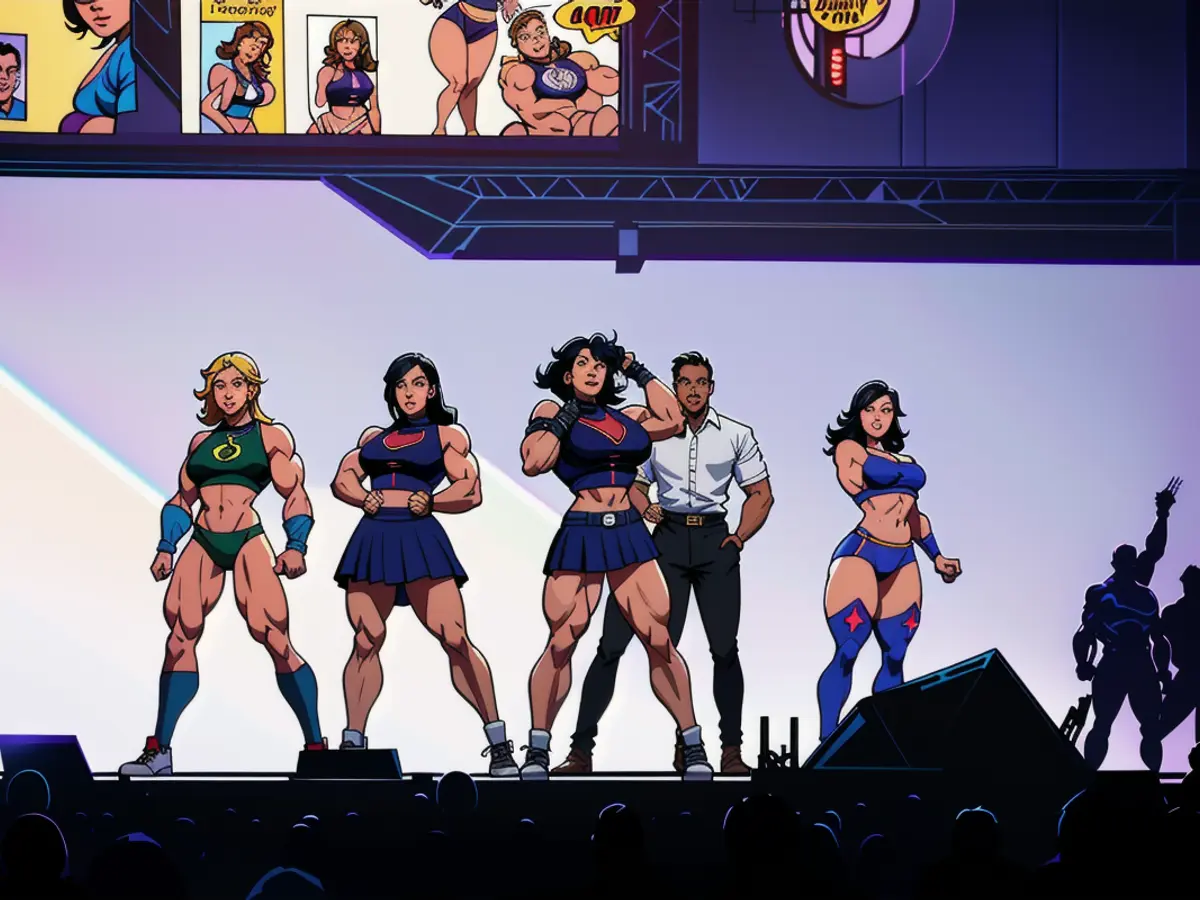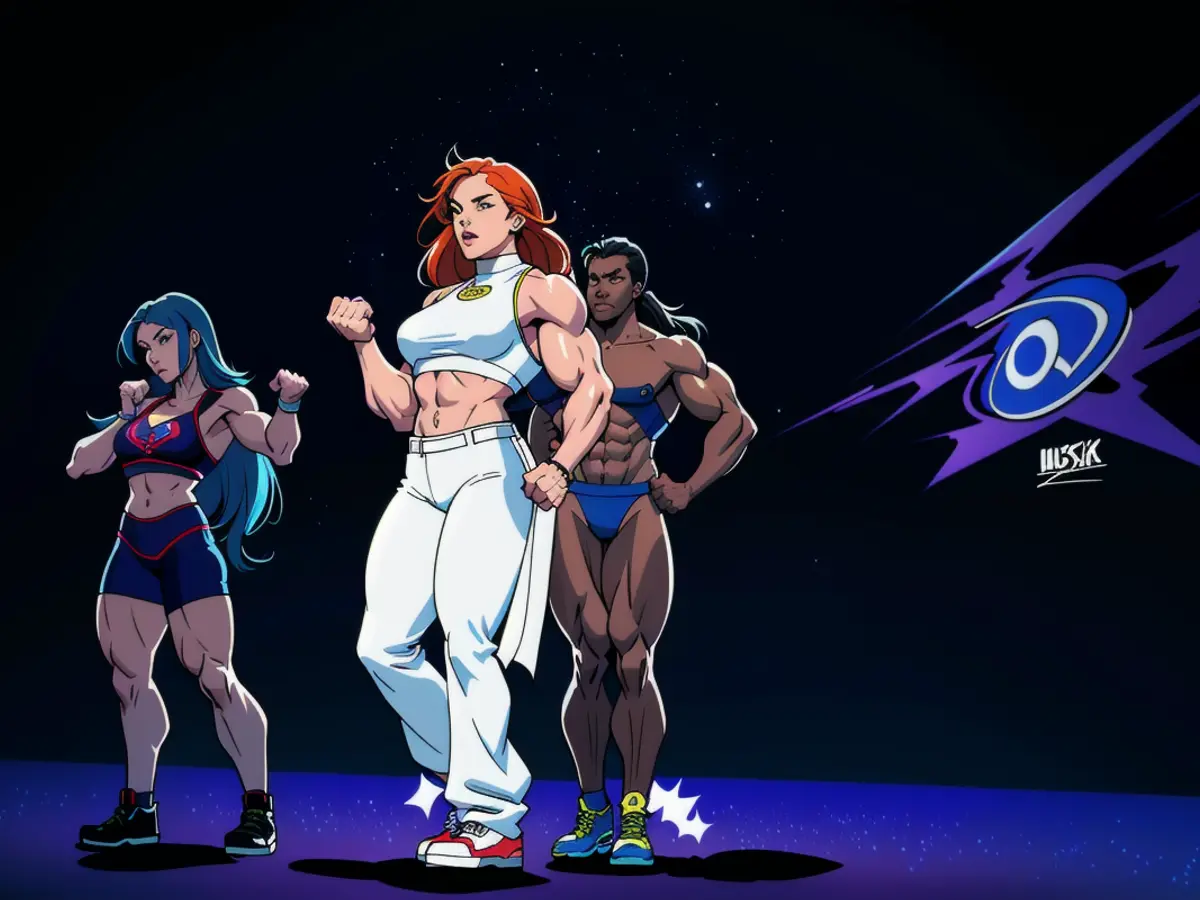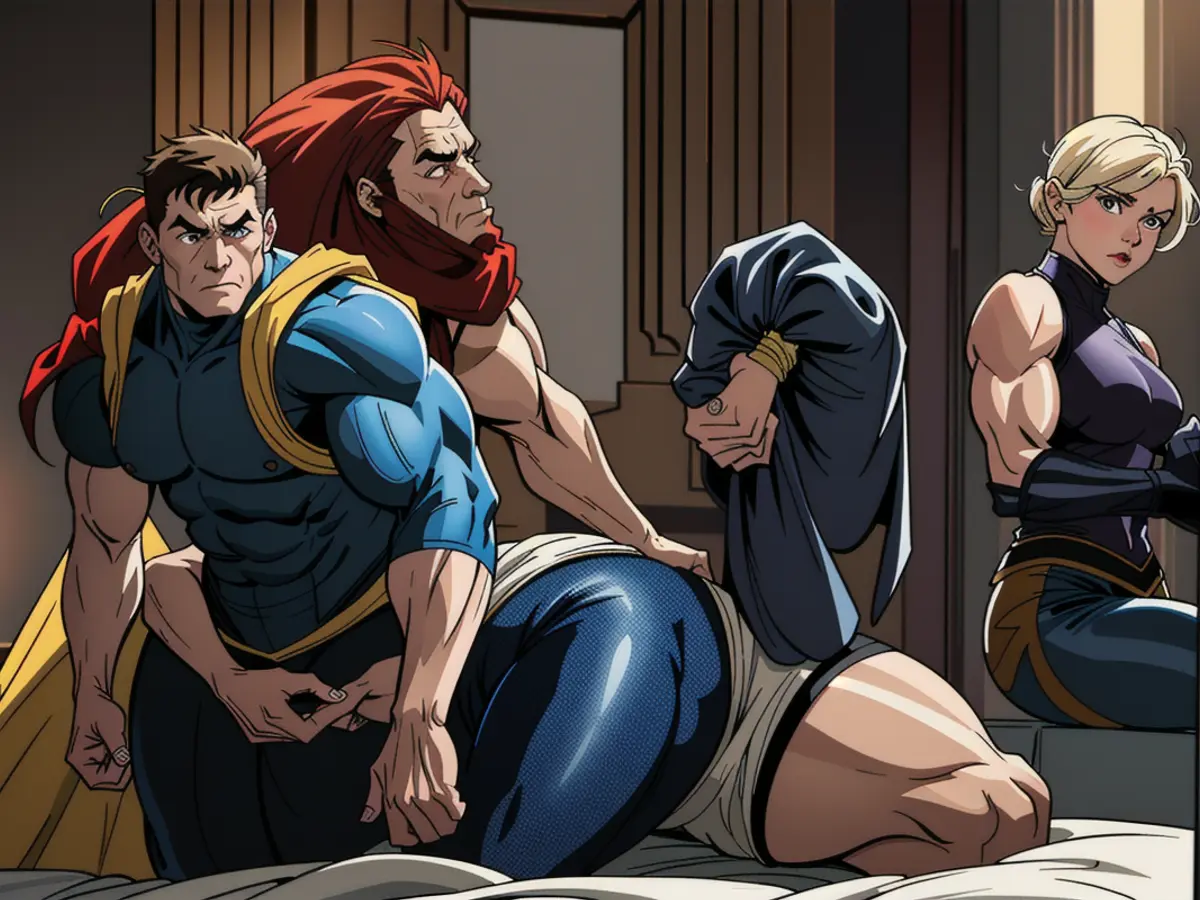The Emergence of widespread Female Sexual Desire in Mainstream Culture
It's fitting that the year would conclude, culturally speaking, with the release of "LadyBoss." The film, scheduled for release on Christmas Day in the UK (January 10 in the US), stars Nicole Kidman as a powerful businesswoman who ventures into a submissive role with one of her subordinates.
As Kidman mentioned during the Venice Film Festival screening in August at a press conference, "It's all about a woman's perspective, seen through her eyes." This aspect, according to her, made the film distinct and liberating.
Halina Reijn, the Dutch filmmaker behind "LadyBoss," shared similar sentiments at the same press conference, expressing her hope that the film would address the significant difference in orgasms between men and women, which she referred to as the "orgasm disparity."
While there have been numerous expressions of female sexuality throughout history, including Edna O'Brien's banned books, Jane Birkin's explicit vocals in "Je t'aime moi non plus," and Cardi B's explicit lyrics in "WAP," they have often been the exception. However, the past 12 months have seen an increase in explicit depictions of female desire, moving from the margins to the mainstream. From film and television to music and literature, the female gaze has been showcased openly, without shame, secrecy, or euphemism.
The Sound of Desire

One singer whose popularity has skyrocketed this year is Chappell Roan. At the beginning of the year, her monthly listeners on Spotify were just over 1 million; now, they've surged to over 43 million. A significant part of Roan's success can be attributed to her authentic representation of queer relationships and her use of sexual references in her lyrics, such as "I heard you like magic/ I've got a Wand and a Rabbit."
Pop princess Sabrina Carpenter also didn't shy away from explicit sexual references. When she released her album "Short n' Sweet" on Instagram in August, she paired it with the caption "four days of ovulation." The record's lyrics included "come ride on me/ I mean camaraderie" and the straightforward "I'm so fucking horny." The album instantly reached number 1 on the Billboard 200 chart.
Summer 2024 was soundtracked by Tinashe's "Nasty," in which the singer repeatedly asks for someone to "match her freak." Meanwhile, in September, FKA Twigs released "Eusexua," a single from her upcoming album of the same name. Earlier in the year, during an interview with British Vogue, the musician explained that she coined the word as a way of describing the "sensation of being so euphoric" that one could "transcend human form."
Female characters weren't limited to music alone. Subscription-based audio erotica app Quinn saw a significant increase in revenue — roughly 440% over the past two years — after a series of celebrities, including actors Andrew Scott and Victoria Pedretti, voiced their stories.

"Talent started to want to talk to us about narrating," said Quinn's founder and CEO, Caroline Spiegel, on a call to CNN. "That was a big shift … Female desire has existed in little pockets throughout history, but now it's everywhere, and it's not hidden anymore. It's definitely more explicit now."
This sentiment echoes Spiegel's beliefs and aligns with Quinn's values, which advocate for the belief that sex is a healthy and crucial part of life, rather than something that should be relegated to a dark, mysterious corner of the internet.
"Sex content doesn't have to be overly graphic and jarring, and instead can simply be another piece of your media diet," Spiegel said.
Which perhaps explains why the top audiobook of 2024, according to Spotify's annual "Wrapped" feature, was a "romantasy" book called "A Court of Thorns and Roses" by Sarah J. Maas. In fact, four of the top 10 audiobooks in the US that year fell under the "romantasy" genre — three of which were written by Maas, earning her the title of Spotify's global top author.

Small-Screen Seduction
Television also showcased a wealth of shows that put female pleasure first. This includes an adaptation of Lisa Taddeo's bestselling book "Three Women" on Starz, which explores the complexities of three different women's sexual lives, and Disney+'s adaptation of Jilly Cooper's book "Rivals," which centers on the desires of various female characters.
Elsewhere, "Bridgerton" returned for a third season that received widespread attention due to a groundbreaking sex scene between Penelope Featherington and Colin Bridgerton, which emphasized consent, respect, and playfulness. The scene lasted over five minutes and broke during filming.
Miranda July's novel "All Fours" serves as a eulogy for the yearning for intimacy during perimenopause. The narrative revolves around the protagonist, a married professional woman and mother, embarking on a fruitless journey that results in an infatuation with a younger man named Davey, who works at a car rental company. Regardless of their mutual attraction, Davey refuses to engage in a physical relationship with her, leaving the unnamed character to resort to vigorous self-pleasure without satisfaction.

At one point, she mourns, "I'd never get what I wanted anymore, man-wise."
The book became an immediate bestseller on the New York Times list, possibly due to its candor about a stage of life that is seldom brought up or represented in literature.
Elsewhere, actress Gillian Anderson edited "Want," an exploration into the desires of women that they might not always feel confident expressing. The 174 anonymous erotic daydreams contribute to a minimal representation of the 800 submissions Anderson received from various corners of the globe. These fantasies range from the more popular scenarios (like threesomes) to the fantastical (like robots) and the emotionally poignant (craving attention from an emotionally detached husband). In the introduction, Anderson mentioned her hope that the book will spur a new discussion on sexual empowerment.
The study of female sexual gratification

This discourse and the amplification of female sexual pleasure had already commenced by 2024, as per Dr. Justin Lehmiller, a social psychologist and senior research fellow at the Kinsey Institute for Research in Sex, Gender, and Reproduction at Indiana University.
Lehmiller referred to recent studies about female masturbation, insisting that the subjects of women's sexual experience and self-satisfaction are now considered less taboo than ever before.
Lehmiller highlighted the expanding market for sexual toys and enhancements designed for women's pleasure. "This underscores just how mainstream women's pleasure has become," he added during a phone interview with CNN.
Lehmiller attributed the shift in female sexual liberation to various factors, including the birth control pill and women's economic and educational advancements. However, he pointed out that psychology and sex therapy, which were traditionally male-dominated fields with misconceptions about female pleasure, have been significantly influenced by women's entry into these fields.

"In the past, these fields were dominated by men who had drastically different ideas about what brings women pleasure. They had a lot of fundamental misunderstandings," Lehmiller explained. "A century ago, Freud was the most prominent voice on the subject — he had a lot to say about female sexuality and pleasure. But as women have taken the lead in these fields, they have altered the conversation."
And they're no longer conversing in hushed tones behind closed doors.
The film "LadyBoss" directed by Halina Reijn, known for its exploration of female perspectives and desires, could potentially introduce discussions about the "orgasm disparity" into mainstream arts and style conversations.
Chappell Roan's songs, such as "I heard you like magic/ I've got a Wand and a Rabbit," have gained popularity due to her authentic representation of queer relationships and sexuality, showcasing the increasing mainstream presence of explicit female desire in music.






